#Knowlton's Rangers
Explore tagged Tumblr posts
Text
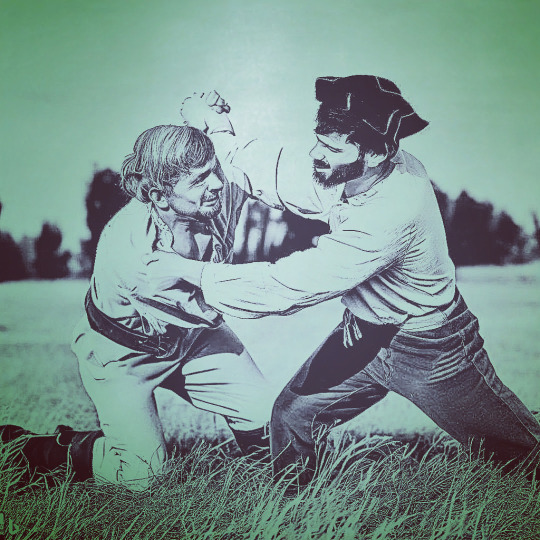
George Washington - America’s first recorded wrestling champion 💪
🇺🇸🇺🇸🇺🇸🇺🇸🇺🇸🇺🇸🇺🇸🇺🇸🇺🇸🇺🇸
Washington was an elite athlete of his day.
He excelled in archery, swimming, horseback riding, and sword fighting.
He was even considered a bit of a pool shark.
But George was also a master of wrestling, a sport he was introduced to during his days at the Rev. James Maury’s Academy in Fredericksburg, Virginia.
He learned an old Irish style known as “collar and elbow” wrestling which included throws, pins, and submissions.
At the age of 18, Washington organized what was believed to be a colony wide wrestling tournament.
He went undefeated and won the title, which he held for many years.
George wrestled through much of his youth and is not recorded to ever lose an official match.
He was known for his brute strength and athletic ability.
At the age of 47, serving as the Continental Army Commander, he wrestled and defeated seven consecutive competitors from the Massachusetts Volunteer Militia.
Ten years later, in 1789, Washington was unanimously elected as America’s first President.
#rogers rangers#selous scouts#america#american badass#Knowlton's Rangers#Ranger Reconnaissance Company#Recondo#Wrestling 🤼♀️#grappling#wariormindset#war of independence#French & Indian war#revolutionary war
1 note
·
View note
Text
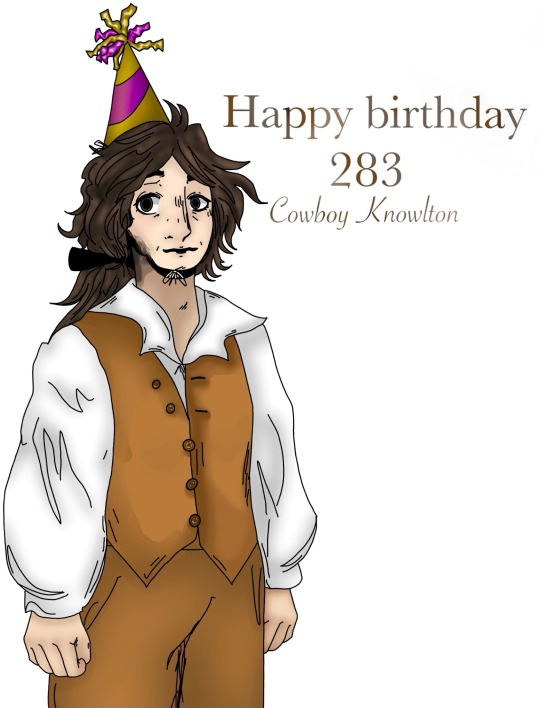
28 notes
·
View notes
Note
Hey sul! I was wondering if you could do the alphabet prompt with Thomas Knowlton if you were still doing those. I would love to see all those cute hcs with our lovely cowboy man 💜💜
Thomas Knowlton Alphabet Prompt
Thomas Knowlton x reader
[a/n: Hi Glitch! YES YES YES ofc I can, literally anything for our cowboy man. I did the whole alphabet on accident bc I actually love writing about Thomas so much.]
A = Affection (How affectionate are they? How do they show affection?)
Thomas is not the best in this department. He’s really good at hand holding, and the occasional arm around the waist/shoulders, but above anything like that, he’s lost. Realistically, in this relationship, he’s going to have a few years on you. He’s not shy, but if you start hanging all over him, he’s gonna playfully shove you off. don’t take it to heart, he’s just not used to it.
B = Best friend (What would they be like as a best friend? How would the friendship start?)
Ultimate dad friend. He knows how to do everything. He’s great at building things, fixing things, and taking care of you when you’re sick.
Thomas is a great best friend, he lowkey looks out for you even before you are good friends, just because he cares for others so much.
C = Cuddles (Do they like to cuddle? How would they cuddle?)
Nah. He would never be caught calling it that, he’d rather not, but, if y’all are alone, and you start snuggling under his arm, he isn’t gonna tell you to stop. It’s something that you are gonna be partaking one-sided in, cuddling is just not for him.
D = Domestic (Do they want to settle down? How are they at cooking and cleaning?)
Yes, absolutely! Thomas clearly was a family man, and he definitely wants to settle down with you.
He’s like 50/50, he wouldn’t want to say it too early, or hold you out for too long.
He’s GREAT at cooking and cleaning. One time, you came home and he was wearing an apron vacuuming the entire flat.
The chores are equally split, but sometimes he can tell you’re stressed out and he’ll do yours anyways.
E = Ending (If they had to break up with their partner, how would they do it?)
Thomas is a gentleman, and for that he will treat you with the upmost dignity and respect. He’s going to do it in person, likely a private place where you could talk it out.
F = Fiance(e) (How do they feel about commitment? How quick would they want to get married?)
Yeah, he’s finna be an old man about it. He’s heavy on commitment, especially when he knows that you’re the one.
And no, he won’t rush into it. Thomas will love you forever, and he will want to marry you likely very early into the relationship, but will wait the appropriate amount of time before popping the question.
G = Gentle (How gentle are they, both physically and emotionally?)
True fact: Thomas is an absolute unit of a man. He was as tall as George Washington, and he was a trained soldier. That being so, he’s characteristically gentle, and every time you instigate a play-fight, he isn’t messing around. Likely, it’ll end with him pinning your arms above your head, and him telling you to knock it off with a smile on his face.
Emotionally, he’s a bit of a stiff. You’ve probably never seen him cry, and he isn’t one to wear his emotions on his sleeve.
If something is really bothering him, you may have to approach him about it, to talk it out.
H = Hugs (Do they like hugs? How often do they do it? What are their hugs like?)
Alright, his one weakness. Throw your arms around his torso, and he’s feeling his heart melt in his chest. Thomas will rarely do it in public other than a greeting, or a goodbye, however, in the sanctuary of your own home, you’re free to do it as much as you please.
I = I love you (How fast do they say the L-word?)
Likely in a moment of weakness. Thomas isn’t entirely sure he’s the best for you, and when you hash it out, Thomas is going to make it very well known that he loves you. You can say it until you’re blue in the face, how much you love him, and sometimes uncertainty just rises. Don’t take it to heart, he’s trying his best to navigate this relationship with you.
J = Jealousy (How jealous do they get? What do they do when they’re jealous?)
Ohhohoooho. Jelly is not in Thomas’s vocabulary, yet sometimes if a lil someone-someone is hanging all over you, he isn’t afraid to step in. You’ll tease him for a better part of the night about it, but he’ll always deny such a feeling.
K = Kisses (What are their kisses like? Where do they like to kiss you? Where do they like to be kissed?)
Thomas always has stubble. His kisses are itchy sometimes (sorry it’s true). but it’s never gotten to the point that it’s not worth it, his kisses are so sweet and lovely. His actions speak louder than his words here.
He likes to kiss you on your cheek, and you always kiss him along his knuckles. It’s a thing you two have.
L = Little ones (How are they around children?)
Arguably the best amerev dad. Actually, I will argue this. He is the best dad. He’s great around kids and he of course wants to have some of his own with you.
M = Morning (How are mornings spent with them?)
Thomas is up early for work, and dependent on when you are up for work/school, it’s slim if you will see him in the morning, other than on the weekends.
N = Night (How are nights spent with them?)
He beats you home, and it’s likely that he’s already gotten dinner going. Thomas loves quiet nights in, and it’s just something you’ve grown to love as well.
O = Open (When would they start revealing things about themselves? Do they say everything all at once or wait a while to reveal things slowly?)
Thomas could preach all he likes that he’s an open book, he most certainly is not. He is not guarded, if you ask him something within reason about himself, he will tell you without batting an eye.
It’s when something really personal is brought up is where he will maybe hesitate. It’s not that he doesn’t trust you, no, that’s not it, it’s just likely you are the first person to hear this information.
Whether it be the first person in a long time, or the first person period, he’s going to be stubborn sometimes.
Just who he is.
P = Patience (How easily angered are they?)
Patience of a Saint. He only gets angry with you when you don’t take care of yourself. He internally reprimands himself for not being there for you enough, and that’s when the anger comes out.
Don’t take it personally, please. He just cares about you so much.
Q = Quizzes (How much would they remember about you? Do they remember every little detail you mention in passing, or do they kind of forget everything?)
Let’s be real here. Thomas definitely has a piece of paper that he keeps in his wallet, that has all of your favorite things on it. Whether it be favorite food from a specific place, your favorite color, your favorite flower—he has it all.
It’s not because he doesn’t remember, it’s because sometimes, he gets new information, and he has to add it. He always remembers it after that first initial say, however, it’s just a backup in case his memory fails him.
R = Remember (What is their favorite moment in your relationship?)
Probably when you told him that he is your best friend, that you trust him, and that you love him. Cliche, but. He’s no fool, he knows that these words are difficult to say, and he knows that you say them from the heart.
S = Security (How protective are they? How would they protect you? How would they like to be protected?)
Hearing Thomas shout is probably like in the top ten scariest things you’ve ever experienced. He is loud, he is very intimidating, and he is fiercely loyal. So, yes. He is very protective of you, and if he has to step between you and some else, he would. Not because you couldn’t handle it, it’s because he’d rather die then see you get hurt.
T = Try (How much effort would they put into dates, anniversaries, gifts, everyday tasks?)
Meh. He’s classic, dinner and flowers probably. It’s effort from him, and you notice. He wears a suit (🤤) and he’s freshly shaven (for him). It’s a nice evening, regardless.
U = Ugly (What would be some bad habits of theirs?)
Not shaving, forgetting where he left things, and leaving things in his pockets when they go into the wash.
V = Vanity (How concerned are they with their looks?)
I have said this in a previous fic, Thomas is not vain, but he is fine as hell. He probably has no idea what a snack he was, the poor man.
I would be absolutely drooling over him. I am drooling over him.
W = Whole (Would they feel incomplete without you?)
Yeah. If you are ever apart, he will miss you like crazy. He rarely will actually put this feeling into words, but sometimes he will end his messages with “miss you”, and it’s enough to convey all of his true feelings.
X = Xtra (A random headcanon for them.)
HE WEARS MIS-MATCHED SOCKS. I feel like he definitely wears longer pants/taller shoes because he cannot ever find a matching pair of socks to save his life.
Y = Yuck (What are some things they wouldn’t like, either in general or in a partner?)
He isn’t a fan of vinegar.
And I feel like in a partner, the only thing you might fight about is probably vinegar.
If you add vinegar to something, and don’t tell him? You better prepare to run and hide because he will never live it down that you tries to poison him.
Z = Zzz (What is a sleep habits of theirs?)
Is the soundest sleeper alive. He could fall out of bed and he would still snore. The only thing that wakes him up is 3 alarms and you kicking him; or whacking him with a pillow.
[a/n: hi welcome to me drooling over Thomas Knowlton. Glitch, tysm for this ask because this is probably like my most favorite thing that I’ve written ever.]
#sul writes#idw the dreamer#idw the dreamer comic#the dreamer idw#the dreamer comic#the dreamer#thomas knowlton#knowltons rangers
4 notes
·
View notes
Text
I'm back! Ask me stuff
(Keep it sfw!)
(This is kind of a mix of historical and modern au)
//Also I don't know much abt amrev. I just made this acc for fun so that ppl can ask this silly little guy their silly little questions ✨✨
2 notes
·
View notes
Text

The Face of Nathan Hale.
Nathan Hale, a distinguished American Patriot, soldier, and spy for the Continental Army during the American Revolutionary War, is immortalized in the face captured through a Photohop reconstruction of Frederick William MacMonnies' statue of Hale in City Hall Park, New York.
Born on June 6, 1755, Nathan Hale excelled academically and graduated with honors from Yale University in 1773. Soon after, in 1775, he joined a Connecticut militia unit and rapidly rose to the rank of first lieutenant within five months. He became a valued member of Knowlton's Rangers, a reconnaissance and espionage detachment established by General George Washington.
At the young age of just over twenty-one, Hale's courage and determination led him to volunteer for a perilous mission behind enemy lines before the Battle of Harlem Heights. Though lacking formal training in espionage, he succeeded in gathering vital information about British troop movements for a week.
Sadly, on September 21, 1776, during his return from a mission, Hale was captured and found in possession of an incriminating document written in Latin hidden in the sole of his shoe. Without a fair trial, General William Howe ordered his execution for spying, which was carried out the next morning, September 22, 1776. Hale spent his final night confined in the greenhouse of Howe's headquarters, and at dawn, he was led to the gallows, where he faced his death with remarkable courage, famously uttering, "I only regret that I have but one life to lose for my country."
Nathan Hale's legacy lives on as America's first spy and a symbol of unwavering patriotism. In recognition of his selfless sacrifice and devotion, he was officially declared Connecticut's state hero on October 1, 1985.
Contemporary accounts paint a picture of a remarkable individual. Beyond his intelligence and athletic prowess in wrestling, football, and broad jumping, Hale was described as kind, gentle, religious, and exceptionally good-looking. With fair skin, light blue eyes, and hair, he stood just under six feet tall, captivating both men and women alike. His presence and character earned him the admiration and affection of all who knew him, and it was said that all the girls in New Haven were enamored by him.
yarbs.net
162 notes
·
View notes
Text
"The Birth of American Intelligence Operations" by Marc Wolfe

BEHOLD! Another amazing work of art I have been recently introduced to!
This scene portrays the final meeting of Nathan Hale and George Washington as they planned the mission Hale would ultimately be killed during. Being an MI officer, we train so that moments like these never happen again. Every decision we make, we keep the soldiers in mind who will be out there risking their lives for us. I know Ben Tallmadge felt this same duty, as he not only lost a fellow MI officer, but his best friend that day.
I received this painting as a gift for my recent graduation from Military Intelligence School in Fort Huachuca, Arizona. And along with this painting came a certificate of authenticity with a little history of the origin of this painting, which I will include below the cut :)
During the Revolutionary War, General George Washington, Commander in Chief of the United States Continental Army wrote, "The necessity of procuring good intelligence is apparent and need not be further urged..." Military Intelligence has since been an important part of Army operations in each of the nation's conflicts.
This scene depicts the planning for one of the first known U.S. Army intelligence missions. In September 1776, General George Washington, Lieutenant Colonel Thomas Knowlton, and Captain Nathan Hale met at Army headquarters in New York City to finalize the plan for CPT Hale's covert mission to Long Island to ascertain British Army movements and intentions.
Following the July 4th, 1776, U.S. Declaration of Independence, the New York campaign was critical to the newborn republic. After defeat at the Battle of Long Island in late August, General Washington needed to determine the location of a British invasion of Manhattan Island and one method to do so was to send a spy behind enemy lines. CPT Nathan Hale was the sole volunteer for this important but dangerous mission.
On September 1, 1776, General Washington organized "Knowlton's Rangers," the first Continental Army unit dedicated to tactical reconnaissance and intelligence gathering. During the Boston Campaign, LTC Knowlton served courageously at the battle of Bunker Hill and led the successful raid on Charlestown to capture British soldiers for questioning. Subsequently on September 16, 1776, during the Battle of Harlem Heights, LTC Knowlton commanded the reconnaissance force that found, engaged, and repulsed the initial British advance. After rejoining the fight later that day, LTC Knowlton was killed in action bravely leading his regiment in the American victory. The loss of this experienced, dynamic, and able leader impacted the young Continental Army. For his gallant exploits, leadership, and command of the first U.S. Army unit designed for intelligence operations, the MI Corps designated LTC Knowlton as its "MI Hero" in 1995. The Knowlton Award recognizes distinguished professionals who contribute significantly to the promotion of Army intelligence.
From Knowlton's Regiment, CPT Nathan Hale stepped forward to conduct intelligence missions against British forces on Long Island, ultimately giving his life for his country. A 21-year-old Yale College graduate and teacher, Nathan Hale had not seen action in the Boston or Long Island Campaigns and felt compelled to contribute to the Continental Army he had joined a year earlier. He saw this mission as a crucial opportunity to serve the patriotic cause. Thus, Nathan Hale dutifully volunteered to collect information against the British Army. According to a subordinate, CPT Hale met with General Washington on two occasions prior to departing. This scene portrays the final meeting.
Dressed in the guise of a school teacher, Nathan Hale crossed Long Island Sound from Connecticut and began his mission. After the British captured New York City, it was set ablaze under suspicious circumstances after midnight on September 21. The British immediately began to arrest local civilians for questioning. Nathan Hale was detained, found to have notes on the British Army, and immediately charged as a spy. According to the standards of the time, undercover spies were hanged as illegal combatants. Without a trial, Nathan Hale was executed on September 22, 1776. His last words were believed to be, "I only regret that I have but one life to give for my country." Nathan Hale was the first American executed for conducting intelligence operations.
General George Washington's use and staunch advocacy of intelligence operations coupled with the distinguished service and sacrifice of LTC Knowlton and CPT Nathan Hale serve as a constant reminder to all MI Corps Soldiers of our significant heritage as well as the hazards of the Military Intelligence profession.
#nathan hale#george washington#benjamin tallmadge#ben tallmadge#turn#turn amc#turn: washington's spies#american history#seth numrich#american revolution#america#military intelligence#us army#military#soldiers#marc wolfe#thomas knowlton#amrev#revolutionary war#revolutionary war spycraft#history
45 notes
·
View notes
Text
Webcomics I think you should read in 2023
The Silver Eye by Laura Hollingsworth (@ thesilvereye on tumblr)
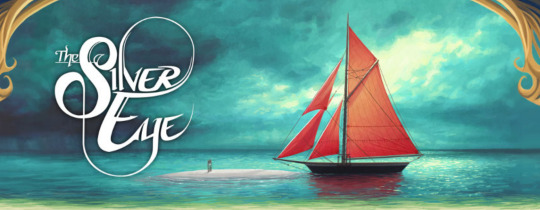
“The Silver Eye began in 2009. It is an action-adventure webcomic of the Fantasy persuasion, written from a Christian worldview. Two rival royal families are always at odds. The conflict reaches a point where one child king, Apen, sacrifices himself and his country to prevent another war. This leads to some disastrous consequences. The story follows his journey to try to set things right, and if he’s going to do so, he has to work alongside members of his rival family.” (Description from the website)
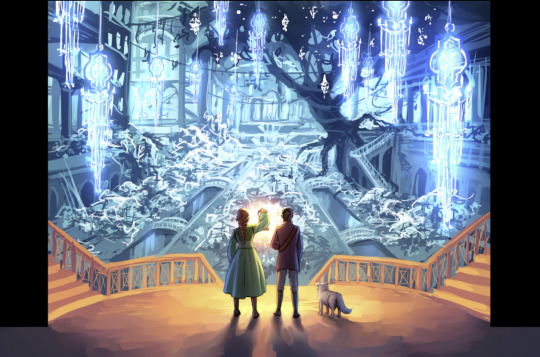
TSE is my personal favorite, as anyone who’s stuck around my blog has probably already figured out lol. It updates on Fridays. (PG to occasional PG-13)
The Legend of Ruach by Paige Coffer (@ paigecofferillustration on tumblr)
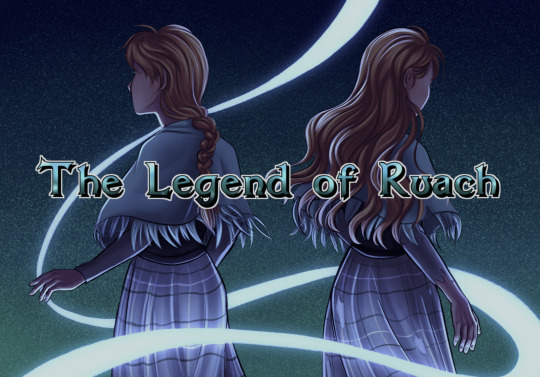
It’s a fantasy/adventure story that’s been running since 2020, updates weekly. I think it’s PG so far, may be soft PG-13 in the future.
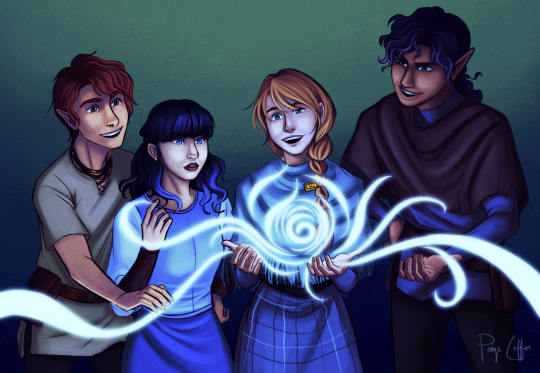
Stand Still, Stay Silent by Minna Sundberg (Completed, 2013-2022) (tumblr @ hummingfluff)
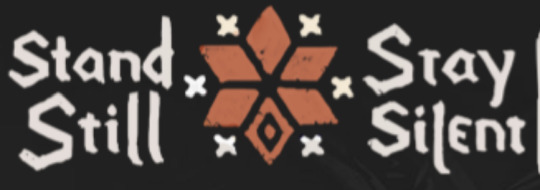
"Stand Still. Stay Silent" is a post apocalyptic webcomic with elements from Nordic mythology, set 90 years in the future. It's a story about friendship and exploring a forgotten world, with some horror, monsters and magic on the side.
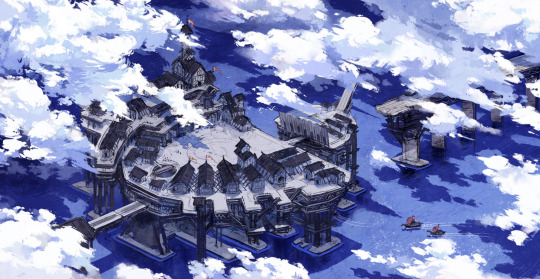
It’s a really neat comic to read as an American because of all the Nordic languages and cultural elements present throughout. Warnings for horror elements/violence, maybe some language (I can’t remember for sure, it’s been awhile since I read it, could be blurred out or something) The author also has talked about her return to her faith/and her next comic is going to be overtly Christian (Journey Upstream) It started recently (Jan 2023)
(More comics under the cut)
Lost in the Vale by Crystal Curtis (tumblr @ lostinthevale)
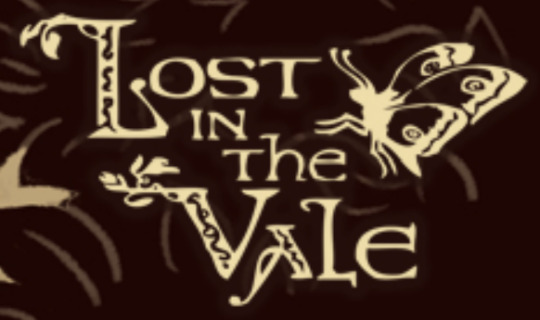
The Outrunners are traveling peacekeepers tasked with assisting the citizens of the Vale. Their top priority: find the missing Prince of Andalusia. For Delica, it's not just her mission - it's her obsession. As she and her teammates travel the kingdom, they will discover more dangers (and mysteries) than they ever imagined.
I started reading this one really recently and quite like it so far, the art style is excellent. Updates Tuesdays, PG-13
Jade Torch by Anne Marie Wells
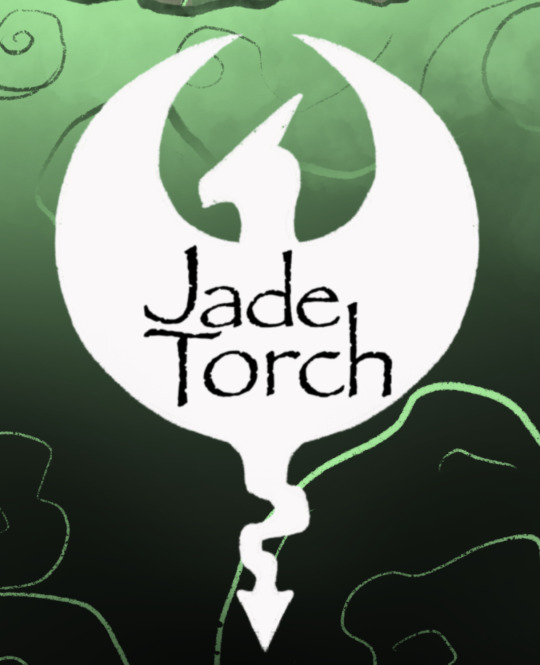
It’s a book turned webcomic turned soon to be released illustrated novel (if I have that right lol)
“Lunerata “Lune” Bridth, heir to the Havanellan throne, is sent to the court of a rival kingdom, the homeland of her deceased mother, to help negotiate a long-awaited peace treaty. But once there, she finds that things are not as simple as she’d been lead to believe. In this foreign land, there are enemies, allies, traitors, secrets, and a plot that could destroy Lune’s world as she knows it and plunge both kingdoms into war. Join Lune and her friends as they set out on an adventure filled with dragons, assassins, mysteries, magic, and the strange ties of family.“ The Dreamer by Lora Innes
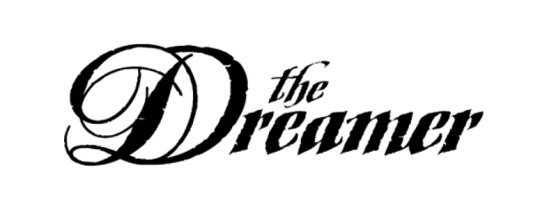
Beatrice “Bea” Whaley seems to have it all; the seventeen year old high school senior is beautiful, wealthy and the star performer of the drama club. And with her uncle’s connections to Broadway theater, the future looks bright ahead of her. Little does she know that her future might actually be brighter behind her.
Bea begins having vivid dreams about a brave and handsome soldier named Alan Warren–a member of an elite group known as Knowlton’s Rangers that served during the Revolutionary War. Prone to keeping her head in the clouds, Bea welcomes her nightly adventures in 1776; filled with danger and romance they give her much to muse about the next day. But it is not long before Beatrice questions whether her dreams are simply dreams or something more. Each night they pick up exactly where the last one ended. And the senses–the smell of musket shots and cannons, the screams of soldiers in agony, and that kiss–are all far more real than any dream she can remember.
Completed, PG-13
Haven’t had a chance to finish this one yet, but it was great as far as I read.
79 notes
·
View notes
Text

TODAY IN HISTORY: September 10, 1776 - Nathan Hale volunteered to spy for the Continental Army. He took part in an intelligence-gathering mission in New York City but was captured by the British and executed. Hale is considered an American hero and in 1985 was officially designated the state hero of Connecticut. Hale a part of Knowlton's Rangers, the first organized intelligence service organization of the United States of America, led by Lieutenant Colonel Thomas Knowlton. General George Washington was desperate to determine the location of the imminent British invasion of Manhattan, and Hale was the only volunteer.
0 notes
Note
Captain Nathan Hale of the Knowlton’s Rangers, America’s first spy and Connecticut’s favorite martyr
have you met @lord-brycegriffiths
Nope
4 notes
·
View notes
Text
Nathan Hale’s Death vs the Primary Sources
(aka did William Hull actually know anything?)
“The first the Americans heard of Hale’s death was on the evening of the twenty-second [September 1776], when Captain John Montresor…an aide de camp to General Howe, approached an outpost…under flag of truce. His main business…did not concern Hale, but was to transport to Washington a letter from Howe offering an exchange of high-ranking prisoners. Joseph Reed, accompanied by General Israel Putnam and Captain Alexander Hamilton, rode to meet him. After passing over the letter, he casually added that one Nathan Hale, a Captain, had been executed that morning.”
This passage comes from “Washington’s Spies: The Story of America’s First Spy Ring” by Alexander Rose and it, along with the wonderful @queerrevolution1776 inspired me to go on a (brief) primary source deep dive of Hale’s death. A challenge, given the lack of primary sources surrounding Hale’s spy work, and the tall tales that grew up around it.
I started here: Why was Hamilton there? He was not an aide-de-camp at this point, why would he be present? And that question, my friends, led to a whole host of others!
(Info under the cut because there is a lot, and it’s fascinating :))
The (Un)reliability of Recollection
The idea of Hamilton having been present to hear of Hale’s fate, so far as I can see, is first related in “Revolutionary Services and Civil Life of General William Hull”, a biography based on Hull’s unpublished memoirs, and written by his daughter, Maria Hull Campbell:
“In a few days, an Officer came to our camp, under a flag of truce, and informed Hamilton, then a Captain of the Artillery, but afterwards an aide to General Washington, that Captain Hale had been arrested within the British lines, condemned as a Spy, and executed that morning. I learned the melancholy particulars from this officer, who was present at his execution, and seemed touched by the circumstances attending it.”
William Hull was a friend of Hale’s from Yale, and they were both in the 19th Regiment, before Hale transferred to Knowlton’s Rangers. A lot of what we know of Hale’s death seems to come from Hull’s memoirs, right down to his (possibly incorrect and/or exaggerated) final words: “I only regret, that I have but one life to lose for my country.” Hull was a close friend of Hale’s, so it does make some sense that he’d know something of it. However, the above biography was written in 1848, and related conversations that had taken place a long time earlier. Campbell herself admits she includes conversations not even present in her father’s memoirs.
Though her book is not the only 18th/19th century one about Hale’s death, it quickly became clear that all of them were based on conversations with Hull. The first time the name ‘Nathan Hale’ even entered the public conscious properly after the war was in 1799, in Hannah Adams’ “A Summary History of New England and General Sketch of the American War” where she writes: “The compiler of this History of New England is indebted to Gen. Hull of Newton for this interesting account of Captain Hale.”
Hale isn’t mentioned again until 1824, in a book by Jedediah Morse, who says he got his info from Adams, who in turn got it from Hull. It seems likely, then, that the idea of Hamilton being there (and indeed, that most of what we know) came from Hull’s supposed recollection, 20+ years after the event took place.
Now, this is not to say that Hull was lying. Return records show that he and his Regiment were certainly present at “Camp near to Harlem Heights” with Washington’s forces at the time that Washington would have been given the information about Hale, and we know Hamilton and his Artillery were present also, as it is at Harlem Heights that he apparently first came to Washington’s notice (according to John C. Hamilton). It did seem a bit strange though, to both me and @queerrevolution1776 , for Hull or Hamilton to have met with an official flag of truce, when they were both only Captains, and not on Washington’s staff (he’d only just become aware of Hamilton’s existence, after all).
Washington makes no mention of either of them in his correspondence, instead writing to Jonathan Trumbull Sr. that it was Colonel Joseph Reed whom Howe’s aide, John Montresor, met with. It makes sense that Reed would have met with Montresor, given his position on Washington’s staff. Reed is mentioned in Rose’s book, but not Hull’s account, and I thought that was a discrepancy worth a look. Hull, writing after the fact, mentions only Hamilton, who by then was a well-known, and scandalous, public figure. Reed, on the other hand, was nowhere near as popular, and perhaps did not serve as such an interesting figure in a story about Hull’s friend, one of America’s earliest spies.
Sure, Hamilton could have been nearby, or overheard the discussion, and in turn told Hull what he had heard—which could explain why Hale’s last moments have been exaggerated, or perhaps accidentally falsified, given that a British officer who was present apparently heard: “It the duty of every good officer, to obey any orders given him by his commander in chief” and not what is so often recounted. Even a newspaper (The Essex Journal) publishing an account five months later, quoted Hale as having said: “If I had ten thousand lives I would lay them all down, if called to it, in defence of my injured, bleeding country”—No one seems quite able to agree exactly what he said! Hull may well have also told his children he was there to make the story seem more personal, and exciting.
(And I’m really starting to doubt that Hamilton was at the meeting at all. It’s never mentioned in any of his writing, or in the John C Hamilton biography)
There’s no “official” reports of Hale’s death either (excepting the noting of his death on the 22nd September casualty list) which is why so much has relied heavily on what Hull claimed to have been told. When Washington wrote Trumbull about the flag of truce meeting the next day, he was mostly concerned with the fire that had engulfed New York the day before, and the claims that Continental soldiers and spies had set it. The only possible reference we have from him that concerned the meeting between Reed and Montresor, with perhaps an oblique reference to Hale, is as follows:
“On Friday night about eleven or twelve o’Clock a fire broke out in the City of New York, which burning rapidly till after Sunrise next morning, destroyed a great number of Houses—By what means it happened we do not know; but the Gentleman who brought the letter out last night from General Howe, and who was one of his Aid De Camps informed Colo. Reed that several of our Countrymen had been punished with various deaths on account of it. Some by hanging, others by burning & c. alledging that they were apprehended when committing the fact.”
Howe himself never mentioned Hale explicitly in official correspondence between him and Washington, and Washington never did either. In fact, neither of them mentioned the spies or the fire to one another at all, concerned with prisoner exchanges, and the accusation of ill-treatment of British prisoners (Howe to Washington 21st September 1776 and Washington to Howe 23rd September 1776). Hale, and his fate, was unfortunately left to Montresor’s verbal account, and Hull’s dubious reporting.
Tench Tilghman on Hale’s Death
In terms of other primary correspondence that might reference Hale’s death, even remotely, we have accounts from Washington’s aide-de-camp, Tench Tilghman.
Firstly, Tilghman wrote his father, James Tilghman, on the 25th September 1776, of the events and executions surrounding the fire. He was sent to deliver Washington’s reply to Howe’s camp under another flag of truce the day after Montresor’s, and spoke with some men in Howe’s camp then:
“Reports concerning the setting fire to New York: If it was done designedly, it was without the knowledge or Approbation of any commanding officer in this Army…every man belonging to the Army who remained in or were found near the City were made close prisoners. Many Acts of barbarous cruelty were committed upon poor creatures who were perhaps flying from the flames, the Soldiers and Sailors looked upon all who were not in the military line as guilty, and burnt and cut to pieces many. But this I am sure was not by Order. Some were executed next day upon good Grounds… I went down to the Enemy's lines yesterday with a Flag to settle the Exchange of prisoners…I met a very civil Gentleman with whom I had an Hours conversation…”
In Rose’s book, he mentions Hull & Colonel Samuel B. Webb going with Tilghman to the camp to further question Montresor about Hale. Webb, another aide-de-camp to Washington, may well have gone. But it seems a bit strange for Hull to have done so. And Hull’s account did not mention Webb, or Tilghman, which is also a bit odd. Rose made no note of his source for this, but I’d like to find it! Perhaps it’s mentioned in Webb’s journals, something I’d have to travel to Yale to see :(
Tilghman did, eventually, mention Hale explicitly, though not by name, when he wrote to Egbert Benson on 3rd October 1776:
“I am sorry that your Convention do not think themselves legally authorized to make examples of those villains they have apprehended…The General is determined if he can bring some of them in his hand’s under the denomination of spies, to execute them. General Howe hanged a Captain of ours belonging to Knowlton' s Rangers, who went into New-York to make discoveries. I don’t see why we should not make retaliation.”
So he definitely knew of Hale’s death by then, and it seemed to anger him greatly.
Miscellaneous Reports of Hale’s Death
There were also reports made by various others, that mention explicitly, or might imply, Hale’s death:
“Friday last we discovered a vast cloud of smoke arising from the north part of the city, which continued '‘ill Saturday evening…those that were found on or near the spot were pitched into the conflagration, some hanged by their heals, others by their necks with their throats cut. Inhuman barbarity! One Hale in New York, on suspicion of being a spy, was taken up and dragged without ceremony to the execution post and hung up.” (A Letter from September 28th 1776)
“We hanged up a rebel spy the other day, and some soldiers got, out of a rebel Gentleman’s garden, a painted soldier on a board, and hung it along with the Rebel; and wrote upon it, General Washington, and I saw it yesterday beyond headquarters by the roadside.” (Kentish Gazette, November 1776)
“A spy from the enemy (by his own full confession) apprehended last night, was this day executed at 11 o’clock in front of Artillery Park.” (General Howe’s diary)
“The Enemy charged some stragglers of our people that happened to be in New York with having set the City on Fire designedly and took that occasion as we were told to exercise some inhuman Crueltys on those poor Wretches that were in their power.” (Committee of Secret Correspondence to Silas Deane 1st October 1776)
What does all this mean?
Hamilton probably wasn’t there (but I can’t make a call on that for sure!)
basically, it’s clear that the primary sources on Hale’s death are few, and somewhat contradictory in places. I found it super interesting, and thought y’all might too! Please keep in mind I’m not calling William Hull a liar (and I definitely haven’t done anywhere near enough research to say anything conclusively!)
But I definitely think it’s always worth examining what we think we know from primary sources. And it’s very fun!
#this took me literal days to collate so I hope y���all find it as interesting as I did#should’ve been doing uni work but no regrets#we all know history research makes me ridiculously happy#nathan hale#William Hull#alexander hamilton#tench tilghman#spy work#September 1776#american revolution#amrev#tw: death#izz gets historical#izz rambles
61 notes
·
View notes
Photo
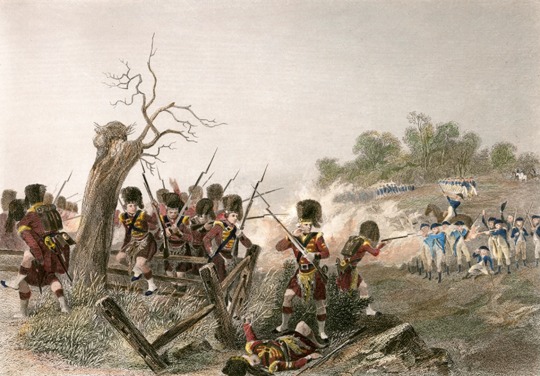
This Day in History: The Battle of Harlem Heights
On this day in 1776, the Americans fought and won the Battle of Harlem Heights. It was a much-needed victory—and George Washington’s first on the battlefield. 🙂
Only weeks before, the Americans had suffered a crushing defeat at Brooklyn Heights. Following the defeat, they'd made a miraculous escape across the East River and into Manhattan, but they had been run out of New York City not too long after that. (See August 22 and 29 history posts.)
On the morning of September 16, Washington received word that the British were advancing on the American position in Harlem. He sent 150 rangers under Lieutenant Colonel Thomas Knowlton to investigate. Those rangers ran into the British redcoats and, after a brief skirmish, were forced to flee back toward Washington and the main body of the army. The British were playing bugle calls, as if they were hunting foxes. “I never felt such a sensation before,” wrote one officer, “It seemed to crown our disgrace.”
“It was a clever, if cruel, way to jangle the nerves of the squire of Mount Vernon,” Washington biographer Ron Chernow notes. Of course, Washington didn’t take the insult lying down! Ignoring the bugle calls meant to humiliate him, he instead decided to counterattack.
The story continues at the link in the comments.
#tdih#otd#this day in history#history#history blog#american revolution#revolution#georgewashington#new york history#sharethehistory
8 notes
·
View notes
Text
᪥ ℐ 𝒶𝓂 𝓎𝓇 𝓂𝒶𝓇𝓉𝓎𝓇 ᪥

The first rebel spy ☆
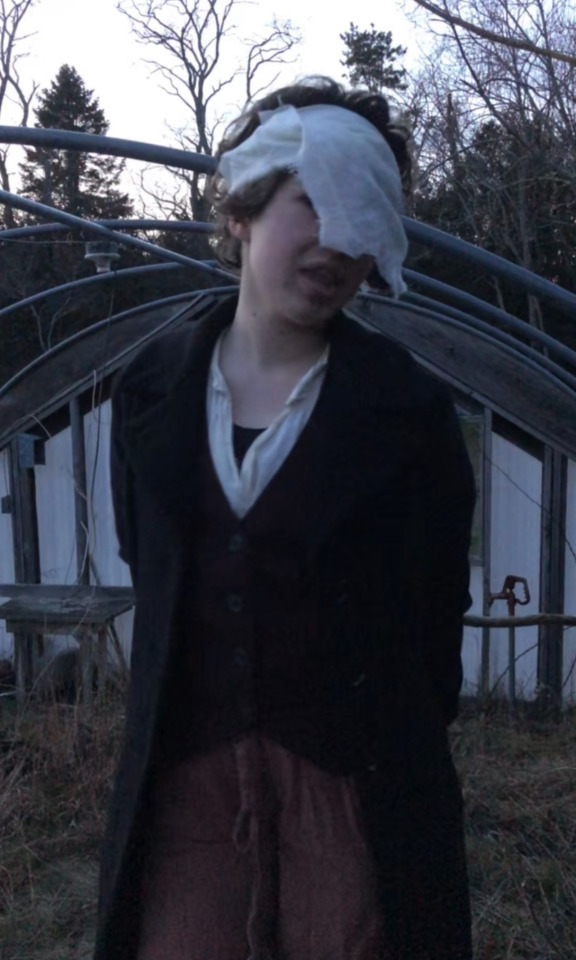


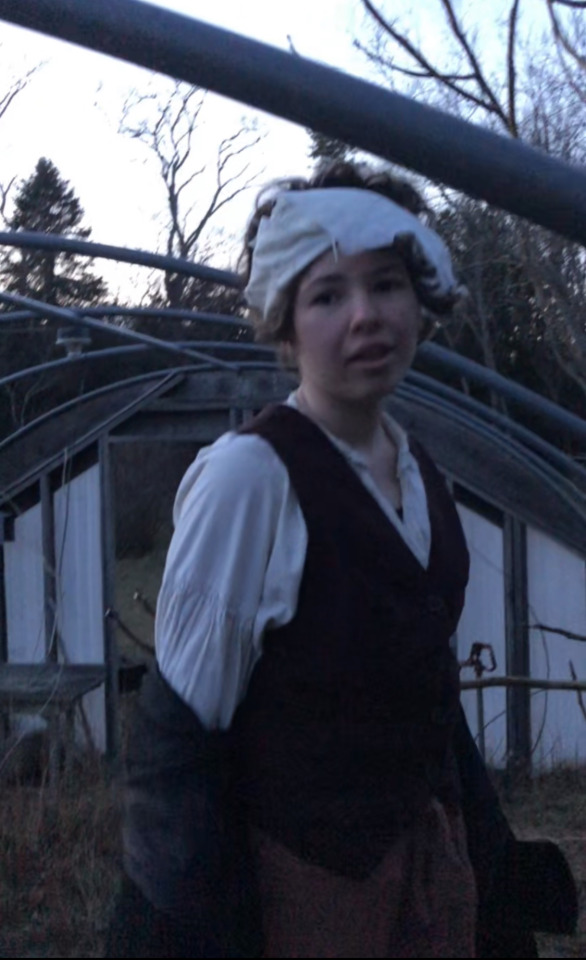
𝐓𝐡𝐞 𝐩𝐫𝐞𝐭𝐭𝐲 𝐜𝐚𝐩𝐭𝐢𝐚𝐧
𝐀𝐧𝐝 𝐭𝐡𝐞 𝐡𝐚𝐧𝐠𝐞𝐝 𝐦𝐚𝐧
𝐋𝐨𝐯𝐞𝐫 𝐨𝐟 𝐁𝐞𝐧 𝐓𝐚𝐥𝐥𝐦𝐚𝐝𝐠𝐞


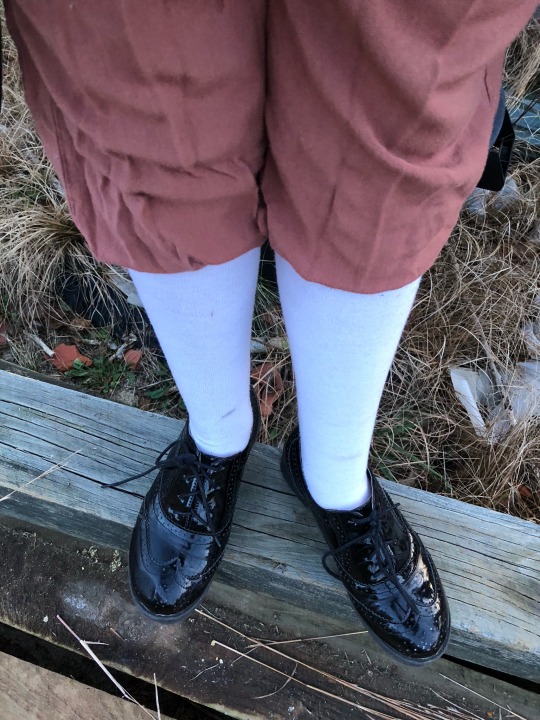
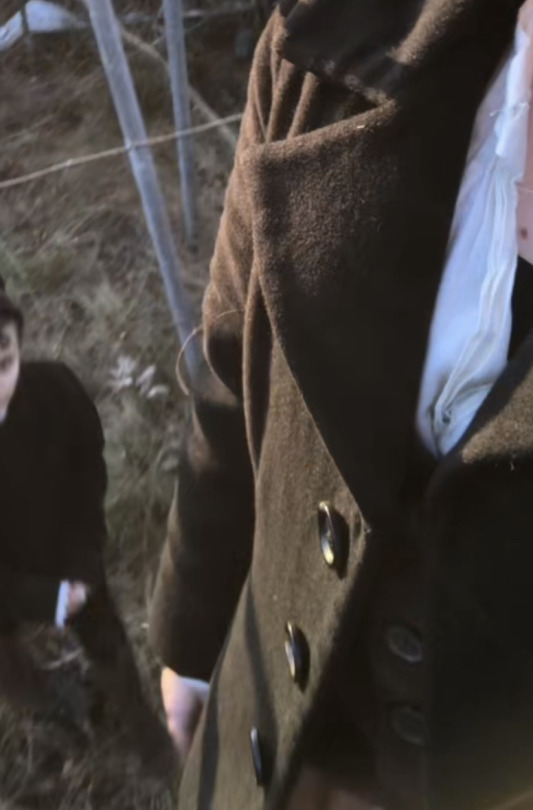

𝒩𝒶𝓉𝒽𝒶𝓃 ℋ𝒶𝓁ℯ ❤︎︎
𝒻𝒶𝒾𝓇 ℴ𝒻 𝒻𝒶𝒸ℯ
𝒜𝓃𝒹 𝓁𝒶𝒸𝓀𝒾𝓃𝑔 ℴ𝒻 𝓇ℯ𝑔ℯ𝓉
𝒜𝓃𝒹 𝒞𝒶𝓊𝑔𝒽𝓉 𝒻ℴ𝓇 𝒽𝒾𝓈 𝒸𝒶𝓇ℯ𝓁ℯ𝓈𝓈 𝒽𝒶𝓈𝓉ℯ
𝒴𝒶𝓃𝓀ℯℯ 𝓈ℴ𝓃 ℴ𝒻 𝒞ℴ𝓃𝓃ℯ𝒸𝓉𝒾𝒸𝓊𝓉
#Nathan Hale#captain Nathan hale#spies#america#the knowltons rangers#tkr#connecticut#America’s first spy#my name is nathan hale and i am having an existential crisis#the martyr speaks#the hanged man#photography#pictures#historical costuming#historical reenactment#abandoned#abandoned greenhouse#the son of Connecticut#state heroes#Americas sweetheart#Americana#lana del rey#amrev#amrev fandom#art#new england#New England gothic#regional gothic#appalachian gothic
11 notes
·
View notes
Note
Well, I’m a teacher, spy and second in command of the Knowlton’s Rangers
Did you meet @offical-nathan-hale76
I don’t believe so. Hello Sir *bows*
14 notes
·
View notes
Text
#11: picking a leaf/flower petal out of their hair, or brushing dirt off of their face.
Thomas Knowlton x reader
The summer heat crawled over the yard, not a single cloud above to protect from the blaring sun overhead.
“Y’alright?”
Over his shoulder, Thomas asks, watching the way you adjust your sunglasses as you look up from the bed of dirt.
“Yeah, it got really hot all of the sudden.”
“Don’t get heatstroke on me darlin’, get inside,”
He returns to pulling weeds, and you don’t miss the way he glances over his shoulder every now and then to check on you.
“I’m fine. I’d like to get these flowers planted, anyways.”
“I can always do that.”
There was something about watching him pull weeds that made you grateful for the redness that was already tinting your cheeks due to the heat.
Dressed in a blue cotton shirt, and a dirty pair of jeans, you could tell that he was likely sweating his ass off as well, though, he was looking awfully handsome doing so.
“No, because this was supposed to be a team effort.”
You gesture to the garden, wiping the sweat that had trailed down your face with the back of your gloved hand.
“And besides, I don’t really see you as the kinda guy who enjoys planting flowers.”
“And wassat supposed to mean?”
Now he’s fully facing you, hands on his hips as you stagger to stand as well, wiping some dirt from your gloves onto your overalls.
“Be honest, Thomas. Look at those weeds, you nearly ripped their heads off.”
You weekly gesture to the pile that had accumulated of the shredded green nuisances.
“They’re weeds, y/n. That would be the point of pullin’ ‘em out, would it not?”
“Yeah, but. You’ve got…let’s just say, your method is not the softest.”
“Oh, I see.”
He says, and you swallow thickly as he marches over to you, treading through some dirt as he does so.
You’re only teasing him, and you know he can see the giggles you’re poorly fighting back.
But Thomas appears to have joined the game, because no sooner he’s standing above you with a smirk on his face.
You blink owlishly, feigning innocence, when he raises a hand, pulling one glove off as his palm comes to your cheek.
“Half-tempted to let ya leave this on for a bit.”
He says, thumb sliding over the apple of your cheek, and you can feel him brush something away.
“Some dirt there.”
His brown eyes are so full of love, and it’s becoming more and more difficult to find any reason to leave his hold.
“Thank you.”
You smile, leaning into his touch as your hand comes to hold his forearm.
“I take back what I said,”
Thomas raises an eyebrow, but lets you continue.
“You probably have the gentlest touch I’ve ever seen. Proved it, just now.”
You both were so sweaty and gross, and though the thought of exchanging a sloppy kiss in this heat made you dizzy.
However, the opportunity was just too good to pass up.
You bounce to the balls of your feet and Thomas meets you halfway, as the sun moves further away and the cool shade returns.
#sul writes#thomas knowlton#knowltons rangers#idw the dreamer comic#idw the dreamer#the dreamer#the dreamer idw#the dreamer comic#Thomas Knowlton x reader
5 notes
·
View notes
Text
Bloodhounds at War

Out today, a blog post about my new book on the Osprey Publishing website.
For George Washington’s adjutant general Joseph Reed, September 16, 1776 started with musket and rifle fire. The Continental Army officer had been sent forward by his commander early in the morning to ascertain the truth behind reports that British forces, who had recently occupied New York, were on the move once more. Ahead of Reed had gone Knowleton’s Rangers, a picked Continental Army light infantry force consisting of 150 officers and men from Massachusetts, Rhode Island and Connecticut.
The New Englanders soon realised they had bitten off more than they could chew for, while reports of a massed British advance were incorrect, the rangers had disturbed a piquet force consisting of their counterparts in the British Army – several companies of regulars from the 2nd Light Infantry Battalion, part of Brigadier General Alexander Leslie’s light infantry brigade. Knowlton’s men soon began a fighting withdrawal.
Washington himself arrived on the scene of the developing engagement as the rangers were being forced back, scrambling up a narrow, wooded defile known as the Hollow Way. Reed, who had been observing the combat, rode to Washington’s side intending to recommend that the New Englanders be reinforced. As he did so, he recalled how the British blew hunting horns as though during a fox chase, a fact that filled Reed with particular shame and anger.
Reed’s assumption was probably incorrect. Two other rebel sources that day identified the blowing of horns as signals being sent to scattered British forces to regroup, a far more likely scenario following a brisk woodland skirmish. While Reed may have been mistaken, the metaphor of British hounds hunting down and savaging the wily American fox was not wholly misplaced. Six months after Reed’s experience one British office wrote that hunting rebels was both easier and more enjoyable than a fox chase. Indeed, by late 1777 rebel soldiers were referring to British light infantry specifically as “bloodhounds.” The king’s savage attack dogs were loose in the colonies.
British light infantry proved to be a vital component for Crown Forces during the American Revolutionary War. Indeed, the idea that the British Army was ill-suited to warfare in the Americas is an incorrect one. The experiences of the Seven Years War in both America and Europe had not only acclimatised the British military to warfare on the frontiers of empire, it had also popularised the concept of light infantry, men who were good shots and physically fit, who could act on their own initiative, endure hardship and fight an elusive foe – at that time, Native Americans and French Canadian colonists – in difficult terrain. While budget cuts saw the light infantry disbanded following the conclusion of the war, the experiences of officers and NCOs would go on to inform the British during the Revolutionary War. Indeed, the commander-in-chief in North America between 1775 and 1778, William Howe, had served as an officer in a light infantry battalion during the Seven Years War.
Beginning in 1771, with unrest brewing in the North American colonies, light infantry companies were reintroduced into first the British and then the Irish establishments. In his 1772 treatise Rules and Orders for the Discipline of the Light Infantry Companies in His Majesty’s Army in Ireland, Lieutenant General George Townshend wrote that light infantrymen should be active and able as well as experienced. They were to be, as an officer during the Seven Years War had recommended, accustomed to long marches, at home in woodlands and excellent marksmen. Townshend stressed that victory - and survival - could depend on one well-placed shot.
Pre-war preparations helped to give the British Army a basis to build upon once fighting broke out in 1775. The experiences of Lexington, Concord and Bunker Hill acted as a reality check to those who thought the rebelling colonists would be easily subdued. The response was not only to consolidate the strength of the light infantry by forming the disparate companies into composite battalions, but to put the main army at Halifax in 1776 through the basics of light infantry drill. From now on even the regular “line” companies of British regiments would fight in open order and typically engage their enemies with speed and aggression, a far cry from the densely-packed, slow “Prussian” drill that is popularly imagined for British forces of the period.
The immediate result was the battle of Long Island – a victory spearheaded by British light infantry battalions – and the capture of New York. Throughout the following seven years of the conflict, light infantry proved themselves to be the army’s elite in North America, giving British commanders the skill and flexibility needed to engage their enemies in all terrain and circumstances. Their successes were so frequent that the Continental Army mimicked them with their creation of their own light infantry brigades, which went on to win renown at Stony Point and Yorktown.
Just as young officers during the Seven Years War had brought their experiences of irregular warfare into the American Revolution, so young British officers of the Revolutionary War would carry over what they had learned in the later Napoleonic Wars. One such officer, John Moore, became one of the leading advocates for light infantry doctrines, and would play an instrumental part in preparing the British Army for its wars with Napoleonic France.
#light infantry#british light infantry#american war of independence#revwar#american revolution#history#military history#18th century#redcoat#redcoats
25 notes
·
View notes
Text
couple interesting facts I found while researching irl Thomas Hickey:
- He was a member of Knowlton’s Rangers before becoming Washington’s Life Guard and gained the rank of Sergeant (he was demoted posthumously to Private for sedition and treason)
- He was a deserter to the British Army for unknown reasons
- He was technically too short to join the Life Guards but slid by because he was good-humored and well liked by his peers and superiors especially good ol’ George
- Also described as “well-set” by multiple sources which was 18th century slang for ‘handsome and athletic’ and the reason i know this is because 1) context but then 2) I needed to check anyway and the first example given for this slang term is that it was ALSO used to describe Sir William Johnson even well into the end of his life and now I want to scream forever this has nothing to do with Thomas but now that I know this fact you all have to as well
#dude had 13 kids and now i no longer wonder why#i just wanted to research thomas hickey and the life guards#curiosity killed the cat i guess but now i can't unsee it#i didn't ask for this#your hands will always be empty // headcanon#the first conspirator // history compliant verses
4 notes
·
View notes